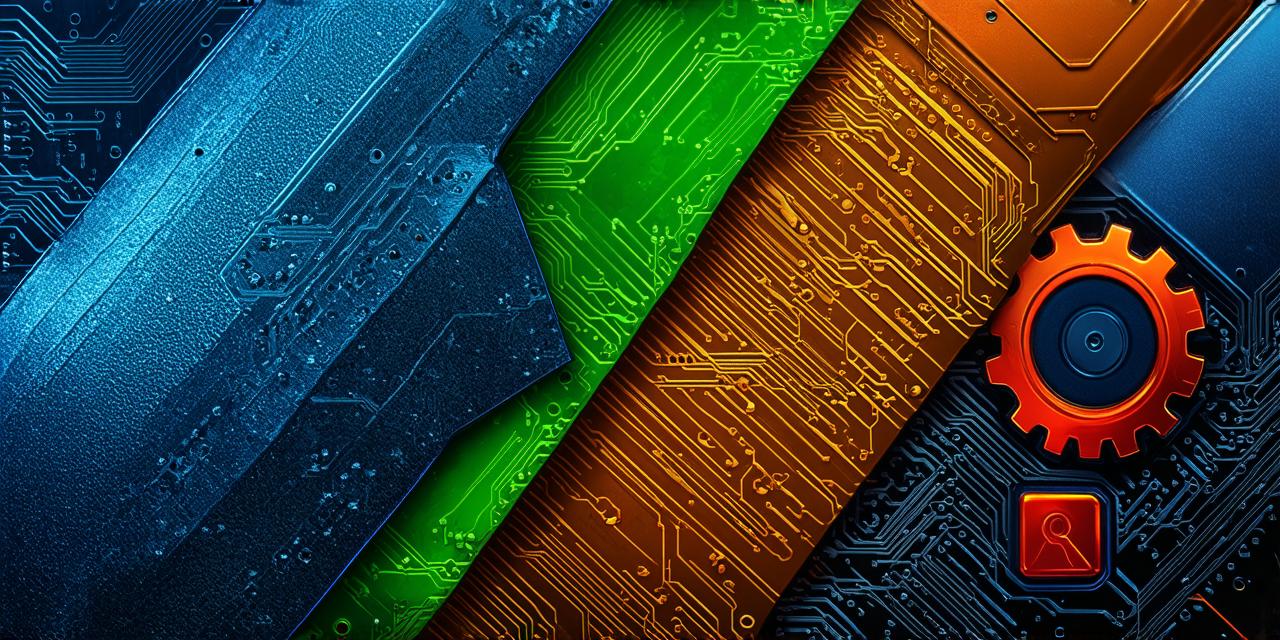Reducing Counterfeit Goods and Improving Product Authenticity

One of the biggest challenges faced by many industries is counterfeit goods. According to a report by the European Commission, counterfeit goods cost the EU economy €80 billion per year and lead to significant loss of revenue for businesses.
Blockchain technology can help combat this issue by providing an immutable record of each product’s journey through the supply chain. By verifying the authenticity of products at every stage, blockchain can prevent counterfeit goods from entering the market and reduce the risk of fraud and theft.
An example of a company that has successfully implemented blockchain for supply chain management is IBM Food Trust.
IBM Food Trust uses blockchain technology to create a secure and transparent system for tracking food products from farm to table. By verifying the authenticity of each product, the platform helps prevent counterfeit goods from entering the market and ensures the safety and quality of the food being consumed.
Improving Traceability and Visibility
Another major benefit of blockchain technology for supply chain management is its ability to improve traceability and visibility. By providing a decentralized and transparent system, blockchain can create an immutable record of every step taken in the supply chain.
This allows businesses to quickly identify where products have been and what actions have been taken along the way.
An example of a company that has successfully implemented blockchain for improved traceability is Walmart.
In 2018, Walmart launched its Food Traceability Initiative, which uses blockchain technology to track food products from farm to store shelf. By providing consumers with real-time information about the origin and journey of their food, Walmart is helping to improve transparency and build trust with customers.
Reducing Costs and Increasing Efficiency
Blockchain technology can also help businesses reduce costs and increase efficiency in supply chain management. By eliminating intermediaries and automating many tasks, blockchain can streamline operations and reduce the time and resources required to manage complex supply chains.
An example of a company that has successfully implemented blockchain for cost reduction is Provenance.
Provenance uses blockchain technology to create a secure and transparent system for tracking and verifying the origin and journey of products. By eliminating intermediaries, Provenance helps businesses reduce costs and increase efficiency in their supply chains.
Improving Sustainability and Environmental Responsibility
Finally, blockchain technology can help businesses improve sustainability and environmental responsibility in supply chain management. By providing a decentralized and transparent system that allows for secure data sharing, blockchain can help reduce waste and carbon emissions by creating more efficient and sustainable supply chains.
An example of a company that has successfully implemented blockchain for sustainability is Maersk.
In 2018, Maersk launched its TradeLens platform, which uses blockchain technology to create a secure and transparent system for tracking and verifying the origin and journey of goods. By reducing waste and carbon emissions, Maersk is helping to create more sustainable supply chains and reduce its environmental impact.
FAQs
1. What is blockchain technology?
Blockchain technology is a decentralized and distributed digital ledger that allows for secure and transparent data sharing. It is designed to eliminate the need for intermediaries and automate many tasks, making it ideal for supply chain management.
2. How does blockchain technology help with counterfeit goods?
By providing an immutable record of each product’s journey through the supply chain, blockchain technology can verify the authenticity of products at every stage. This helps prevent counterfeit goods from entering the market and reduces the risk of fraud and theft.
3. How does blockchain technology improve traceability and visibility?
By creating a decentralized and transparent system that provides real-time information about the origin and journey of products, blockchain technology can improve traceability and increase transparency in supply chain management.
4. How does blockchain technology reduce costs and increase efficiency?
By eliminating intermediaries and automating many tasks, blockchain technology can streamline operations and reduce the time and resources required to manage complex supply chains. This helps businesses reduce costs and increase efficiency in their supply chains.
5. How does blockchain technology improve sustainability and environmental responsibility?
By providing a decentralized and transparent system that allows for secure data sharing, blockchain technology can help reduce waste and carbon emissions by creating more efficient and sustainable supply chains. This helps businesses reduce their environmental impact and create a more sustainable future.
